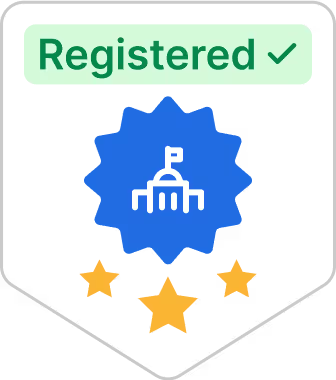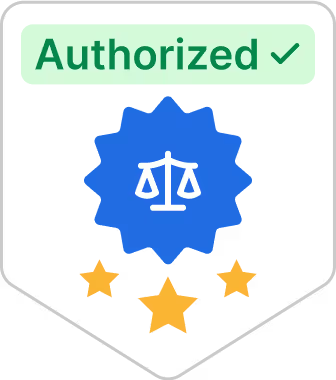What’s the difference between ITIN vs SSN?

The United States immigration system can sometimes feel overly confusing and time-consuming to navigate. But with the right guidance (and a bit of patience), you can establish yourself as a resident and eventually, a citizen.
One of the first things you must do is acquire an ITIN (Individual Taxpayer Identification Number). This allows you to pay income taxes and opens the gate to eventually acquiring a Social Security Number (SSN).
Here we compare ITIN vs Social Security numbers and describe who needs each, what you can do with them, and how an ITIN can be a pre-placement for a SSN.
Let’s start with the ITIN.
ITIN basics
Have you wondered is an ITIN the same as a Social Security Number? The answer is no.
Both are nine digits long and are used as personal identifiers in the United States. However, the similarities end there. An ITIN is intended to be used for income tax purposes.
Who needs an ITIN?
If you must file income taxes in the U.S. but aren’t able to get a SSN, then you’ll need to apply for an ITIN. ITINs are available for:
- Non-resident aliens
- Resident aliens not eligible for a SSN
- Spouses and dependents of the above
- International students
With an ITIN number or individual tax identification number, you’ll be able to file income taxes. An ITIN cannot be used by the government to track undocumented immigrants. The IRS is required by law to protect taxpayer information and isn’t allowed to release this information to other government agencies.
What’s required to Get an ITIN?
Wondering how to get an ITIN number? There are three things an ITIN applicant will need. They are:
- A completed W-7 form
- Proof of identity and foreign status by one of the documents on the revised IRS standards list
- An income tax return
These are also some of the filing requirements on how to renew your ITIN number.
What can you use an ITIN For?
The main purpose of an ITIN number is to give you a safe way to file your income taxes. Some employers will hire you with an ITIN instead of a SSN so you can earn wages to support your family. In some states, you might be able to use an ITIN to:
- Open a bank account
- Get a driver’s license
- Provide residency proof
Now, let’s take a look at how a SSN differs.
SSN Basics
Similar to ITINs, SSNs serve as tax reporting numbers. However, there are more things a SSN opens the door to.
Who needs a SSN?
SSNs are issued to U.S. citizens and certain noncitizen residents with work authorization or employment authorization. Anyone who enters the country with legal permission to work (including a nonresident alien) must apply for a SSN. Furthermore, a SSN is required to access many social security benefits and to receive wages for your work.
What’s required to get a SSN as a noncitizen?
To apply for a SSN, you’ll need to wait until you’ve been in the U.S. for at least 10 days. After this waiting period, you’ll need to complete the SS-5 application form and submit it along with:
- Permission to work – Typically, the only noncitizens who can apply for a SSN are those who have been granted permission to work from the Department of Homeland Security (DHS). Your paperwork admitting you into the U.S. will show this designation. These can include:
- I-551 Permanent Resident Card
- I-94 Arrival/Departure Record
- I-766 EAD Work Permit
- Proof of age and identity – You’ll need to have your birth certificate. If this isn’t possible, the SSA may accept your passport instead. You might need additional proof of identification depending on the type of DHS papers you’ve received.
These are also some of the required documents for a social security card replacement.
What can you use a SSN for?
A SSN is your ticket to several benefits in the U.S. These include:
- Collect Social Security – Many people rely on Social Security benefits to supplement their other retirement income. Your SSN connects your earnings to your Social Security account. If you filed income taxes under your ITIN and now have a SSN, the earnings you claimed with your ITIN will transfer over to your SSN.
- Access government services – Other government services such as Medicare, Supplemental Security Income (SSI), and disability support require a SSN.
- Right to work – A SSN gives you the legal right to work in the U.S.
ITIN as a path to a SSN
It might be helpful to think of filing an ITIN application as a gate you cross through to get closer to a SSN. Becoming an ITIN holder demonstrates that you’ve established residency and lawfully paid income taxes. This information can help prove eligibility for legal immigrant status in the future.
Fill out our online ITIN application or SSN application now to get started.
Sources:
- IRS. Taxpayer Identification Numbers. https://www.irs.gov/individuals/international-taxpayers/taxpayer-identification-numbers-tin
- American Immigration Council. The Facts About the Individual Taxpayer Identification Number (ITIN). https://www.americanimmigrationcouncil.org/research/facts-about-individual-taxpayer-identification-number-itin
- SSA. Original Card for a Noncitizen Adult. https://www.ssa.gov/ssnumber/ss5doc.htm
- SSA. Social Security Number and Card. https://www.ssa.gov/ssnumber/
- National Immigrant Law Center. Individual Taxpayer Identification Number (ITIN). https://www.nilc.org/issues/taxes/itinfaq/























